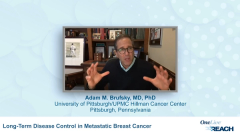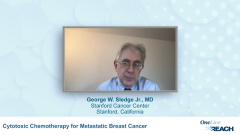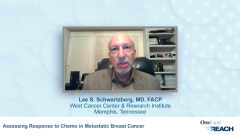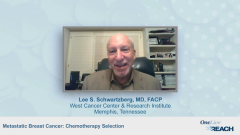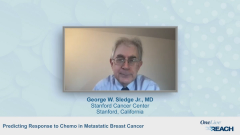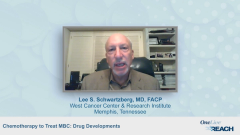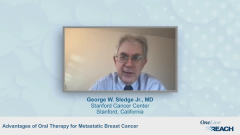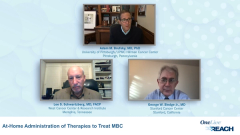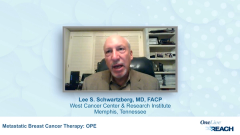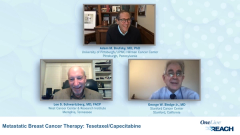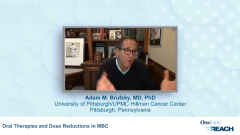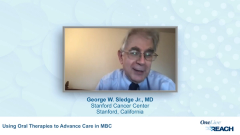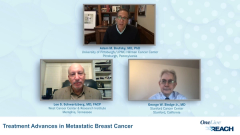
Metastatic Breast Cancer: Chemotherapy Selection
Episodes in this series

Adam M. Brufsky, MD, PhD: Let’s turn it a bit to some more practical kinds of things. What factors do you consider when you select chemotherapy for somebody? What is going through your mind in metastatic disease? That’s a huge thing, obviously. I will let you guys answer that. It is an incredibly general question.
I will start with Lee: What do you think? What goes through your mind? You have a woman coming in the door who has metastatic breast cancer. Let’s make it incredibly generic. What would make you do chemotherapy over hormonal therapy as an example?
Lee S. Schwartzberg, MD, FACP: Today we are going to subdivide the patients into at least 3 groups: HER2+ [human epidermal growth factor receptor 2 positive], HR+ [hormone receptor positive]/HER2-, and triple-negative. We start from that when we are thinking about the disease.
We also then think about patient factors. The patient’s prior therapy is increasingly more important in my mind because we have tended to get more appropriately aggressive in the adjuvant setting. Therefore, we may see a different pattern of response to therapies that traditionally were used in the metastatic setting without prior exposure. That is true for taxanes, for example, depending on when the patients were previously exposed.
Patient factors are important, as we all know, for patients with metastatic breast cancer. We cannot tell them that, on the 1 hand, we are going to make them a patient with chronic disease, and their quality of life is going to be great and then give them therapy that is going to have them, in the worst cases, end up in the hospital. That is not doing a favor for patients. In the hormone receptor–positive group, we are all excited about the vast majority of women receiving CDK4/6 inhibitors in therapy to start.
In the other groups, at least at the moment, it is chemotherapy with or without HER2 therapy, or it is chemotherapy alone in the triple-negative population in the first-line setting. That is how I think about it. When patients with hormone receptor–positive disease finish their endocrine therapy—however many lines that is, and it is increasingly longer—at that point, they behave not-too-dissimilarly in terms of response and length of life to patients with triple-negative disease who are de novo. It is usually a couple of years, or it may be a bit longer than patients with triple-negative disease. They are responding to the same types of therapies.
Transcript Edited for Clarity


